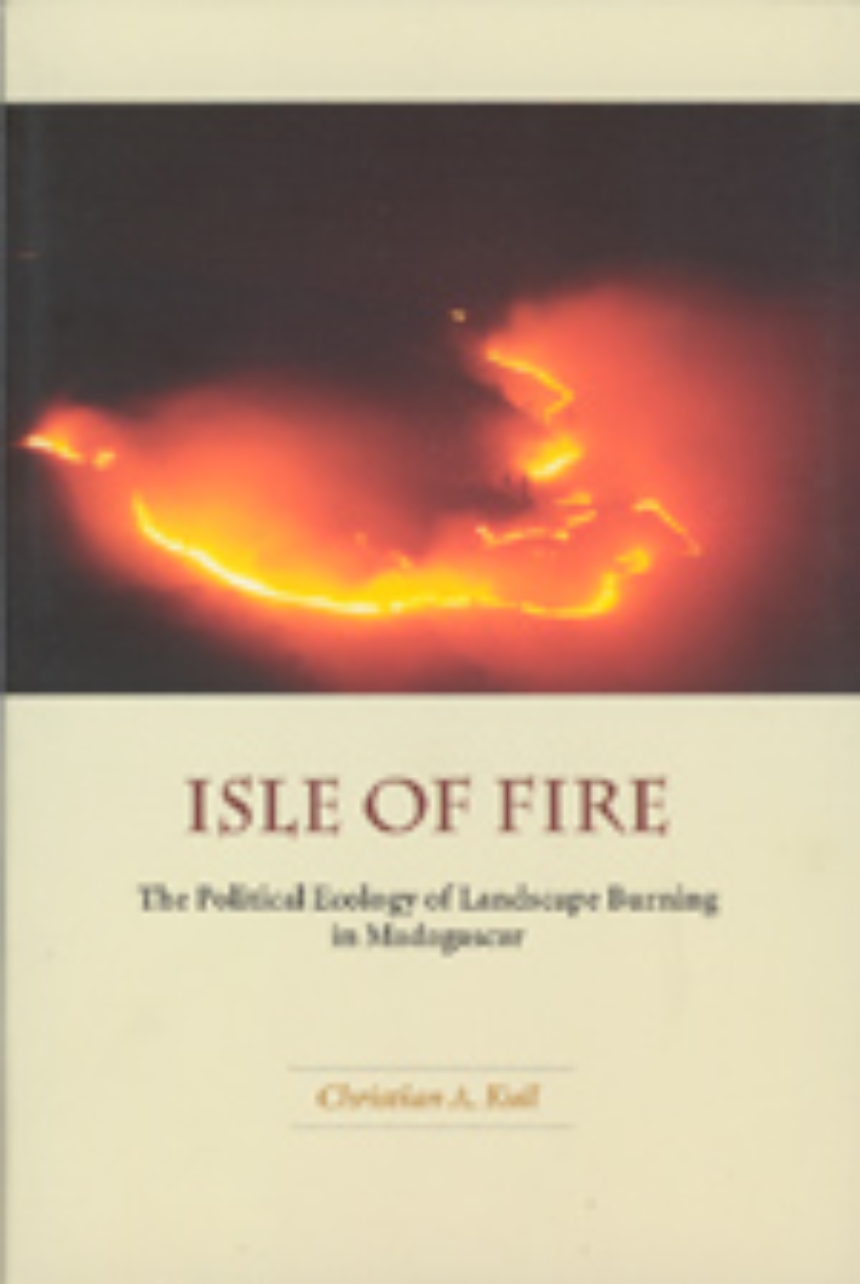Isle of Fire
The Political Ecology of Landscape Burning in Madagascar
Long considered both best friend and worst enemy to humankind, fire is at once creative and destructive. On the endangered tropical island of Madagascar, these two faces of fire have fueled a century-long conflict between rural farmers and island leaders. Based on detailed fieldwork in Malagasy villages and a thorough archival investigation, Isle of Fire offers a detailed analysis of why Madagascar has always been aflame, why it always will be aflame, and ultimately, as Christian Kull argues, why it should remain aflame.
256 pages | 17 halftones, 11 line drawings, 19 tables | 6 x 9 | © 2004
University of Chicago Geography Research Papers
Biological Sciences: Conservation
Geography: Environmental Geography
Reviews
Table of Contents
Acknowledgments
Glossary
Part One: The Fire Problem
1. The Isle of Fire: Problem, Theory, and Setting
2. The Nature of Fire: Bad Fire, Good Fire, Complex Fire
Part Two: Landscape Burning and Livelihoods
3. Grassland Fire: The Agropastoral Logic of Fire across the Highlands
4. Woodland Fire: Fire and Rural Economy in the Tapia Woodlands
5. Forest Fire: Slash-and-Burn Farmers on a Forest Frontier
Part Three: Fire Politics
6. The Struggle over Fire: Criminalization and Resistance
7. Fire Politics: A History of State Antifire Efforts
8. Empowering Rural Fire Setters: Towards Community-Based Fire Management
9. Conclusion
Appendices
1. Official Statistics of Annual Fire Extent
2. Summary of Legislation and Government Acts Relevant to Fire, 1896-1998
References
Index
Glossary
Part One: The Fire Problem
1. The Isle of Fire: Problem, Theory, and Setting
2. The Nature of Fire: Bad Fire, Good Fire, Complex Fire
Part Two: Landscape Burning and Livelihoods
3. Grassland Fire: The Agropastoral Logic of Fire across the Highlands
4. Woodland Fire: Fire and Rural Economy in the Tapia Woodlands
5. Forest Fire: Slash-and-Burn Farmers on a Forest Frontier
Part Three: Fire Politics
6. The Struggle over Fire: Criminalization and Resistance
7. Fire Politics: A History of State Antifire Efforts
8. Empowering Rural Fire Setters: Towards Community-Based Fire Management
9. Conclusion
Appendices
1. Official Statistics of Annual Fire Extent
2. Summary of Legislation and Government Acts Relevant to Fire, 1896-1998
References
Index
